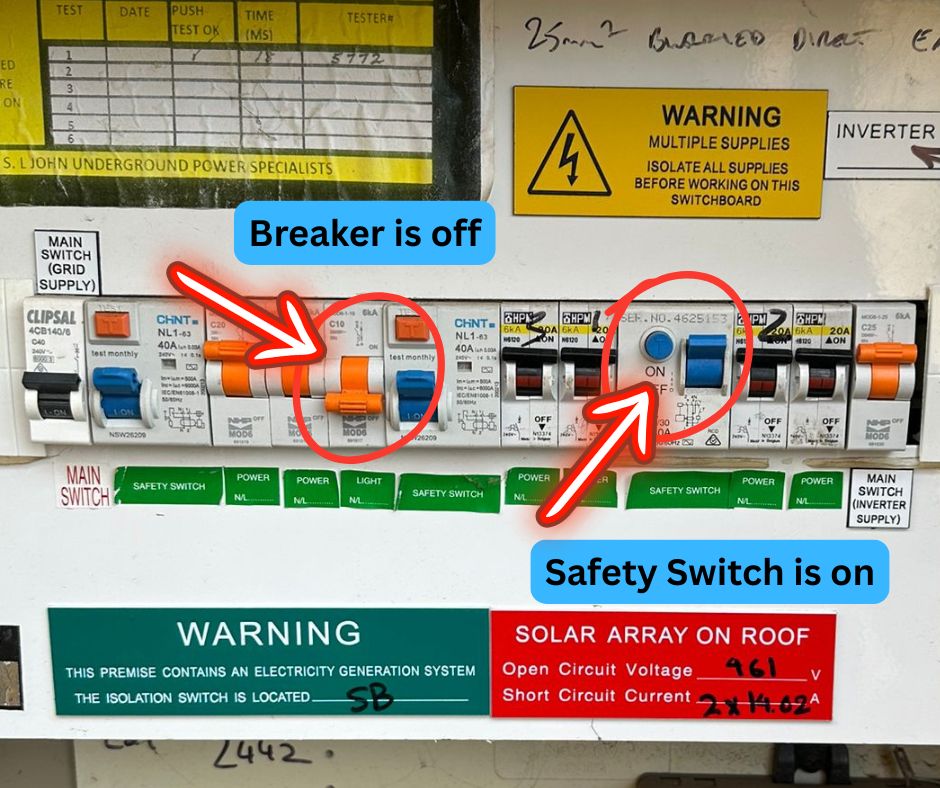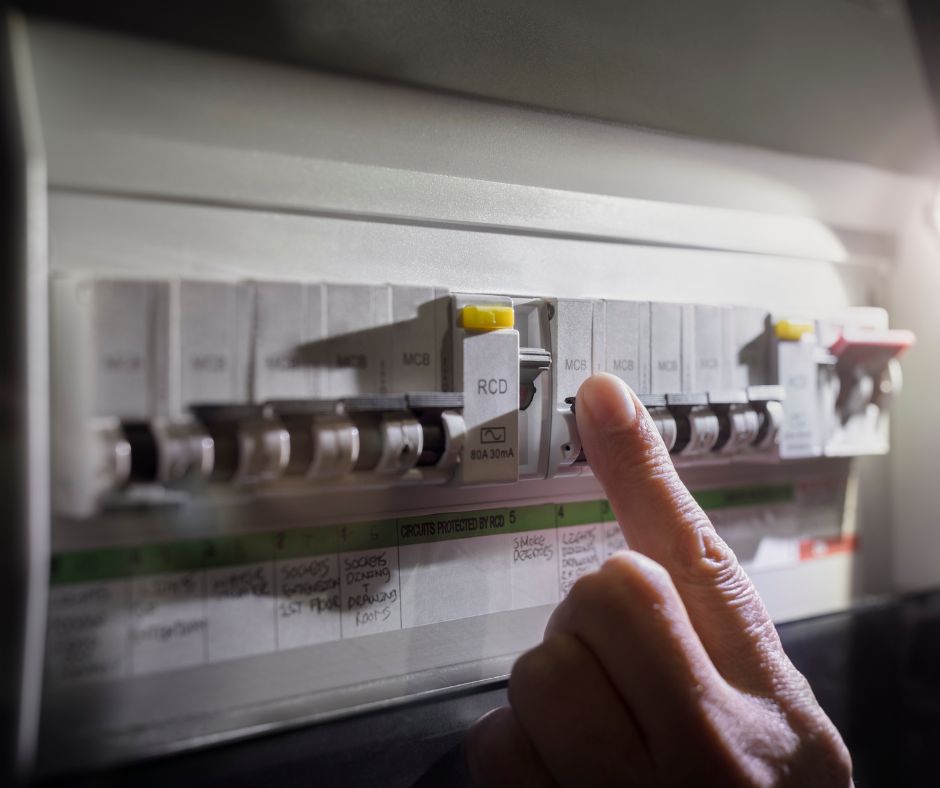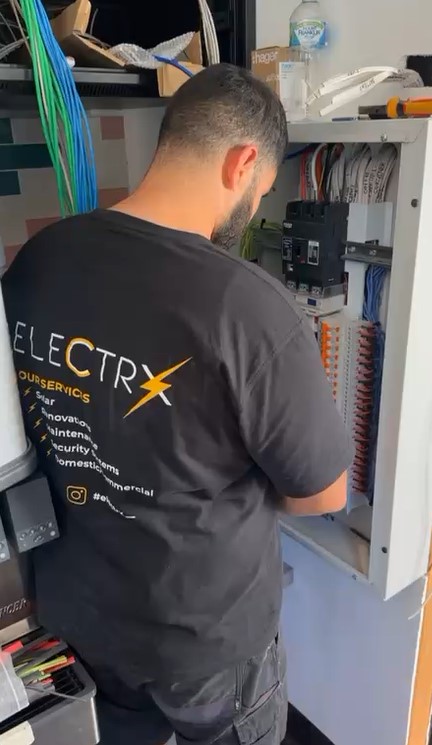Uncover the Most Common Reasons Behind Frequent Circuit Breaker Tripping in Your Home
When a circuit breaker consistently trips, it serves a crucial purpose in safeguarding your home against potentially dangerous electrical faults. This recurring problem can stem from several prevalent issues, such as overloaded circuits, short circuits, malfunctioning appliances, or hidden wiring issues. If you observe your breaker tripping frequently, it is essential to pinpoint the root cause and engage a qualified electrician to perform necessary repairs. This action is vital to restore your home's safety and ensure its electrical functionality is optimal.

Step-by-Step Guide to Diagnosing the Causes of Circuit Breaker Tripping
If your circuit breaker promptly cuts off power after being reset, this is a clear indication that a significant problem exists within your electrical system. The breaker is fulfilling its intended role by stopping the flow of electricity to prevent potential hazards or the development of larger issues. Taking immediate action to address these problems is essential for maintaining the safety and functionality of your electrical setup, thus preventing further complications from arising.
Homeowners in Werribee, Altona, and Point Cook often reach out to us with concerns about this troubling issue. While it may seem inconvenient, this phenomenon is frequently an early warning sign of more severe electrical problems that could pose significant risks if not addressed promptly and effectively.
This article aims to delve into the various underlying causes of circuit breaker issues, provide actionable troubleshooting steps that you can undertake, and explain how Electrx can skillfully resolve these electrical challenges with efficiency and expertise.
How Circuit Breakers Function to Safeguard Your Home from Electrical Hazards
Circuit breakers act as automatic safety devices, specifically engineered to protect your home by interrupting the flow of electricity under certain conditions, such as:
- When excessive current surges through a circuit, resulting in an overload situation that could lead to overheating.
- In instances of short circuits, which can precipitate hazardous electrical faults.
- When there is power leakage to the ground, signalling an earth fault that needs urgent attention.
- If the circuit breaker itself is faulty or approaching the end of its operational lifespan.
Unlike traditional fuses, which rely on melting wires to stop current flow, circuit breakers react much more swiftly to potential threats. This rapid response mechanism provides a superior safety feature that contributes to a much safer environment for you and your family.
Uncovering the Reasons Why Your Circuit Breaker Fails to Remain Reset
<pIf you find yourself repeatedly resetting the breaker only for it to trip again almost instantly, this suggests that there is an active fault present on that particular circuit. Recognising the common causes can significantly aid you in diagnosing the issue effectively and promptly.
The primary concerns that often lead to this frustrating situation include:
Exploring the Issue of Overloaded Circuits: A Common Electrical Challenge
Overloaded circuits represent a frequent electrical dilemma, particularly when multiple high-draw devices like kettles, toasters, or heaters are used simultaneously on the same circuit. The cumulative load can easily surpass the safe capacity, causing the circuit breaker to trip as a protective measure against overheating and potential fire hazards that could jeopardise your home and its occupants.
Assessing if Faulty Appliances Are a Factor in Circuit Breaker Tripping
In many cases, the source of the problem may be traced back to the devices plugged into the circuit rather than to the wiring itself. Appliances such as heaters, older refrigerators, and dryers are often significant contributors; internal faults within these devices can lead to short circuits or current leakage, resulting in the breaker tripping unexpectedly.
The Dangers Associated with Short Circuits and Their Triggers
Short circuits occur when damaged wiring, rodent infestations, or crushed insulation allow live wires to come into direct contact with the earth or neutral wires. This condition can prompt the circuit breaker to trip quickly to avert hazardous outcomes that could threaten your property and personal safety.
Understanding Earth Leakage: Its Significance and Consequences
Moisture intrusion in outdoor outlets, garden lighting setups, or under-house cabling can create scenarios conducive to current leakage into the ground. This situation can cause Residual Current Devices (RCDs) to trip as a precaution, ensuring the safety of your electrical system and preventing potentially dangerous incidents.

Essential Steps to Take When Your Circuit Breaker Trips
- Unplug all devices connected to the outlets on the affected circuit to eliminate any potential source of overload and assess the situation accurately.
- Reset the circuit breaker by flipping it back to the ‘on' position, allowing for a fresh start.
- If the breaker remains active, begin to reconnect your devices one at a time to identify the specific source of the problem.
- When the breaker trips again, you will have successfully pinpointed the faulty device that requires further inspection or replacement.
- If the breaker continues to trip even with no devices connected, it is imperative to contact our team for professional assistance to investigate the issue thoroughly.
Utilise our Fault Finding Service to obtain a comprehensive and prompt diagnosis of your electrical issues, ensuring your safety and peace of mind.
Recognising When to Cease Resetting Your Circuit Breaker
If your circuit breaker frequently trips or fails to reset altogether, it is crucial to observe the following precautions:
- Refrain from continuously resetting the breaker—this action can exert excessive stress on the entire electrical system, leading to additional complications.
- Avoid swapping breakers between different circuits, as this practice may exacerbate the issues at hand.
- Do not attempt to replace the breaker yourself—this is not only against the law but also presents significant safety risks to you and your property.
We have encountered numerous scenarios where DIY resets have led to damaged boards or even house fires. Trust our experienced professionals to safely and effectively trace the underlying issue and provide a reliable resolution.
What to Expect When Electrx Addresses Your Circuit Breaker Concerns
When our dedicated team at Electrx responds to a reported circuit breaker fault, we initiate a thorough evaluation that encompasses:
- Testing the circuit with specialized clamp meters and insulation testers to guarantee safety and reliability.
- Inspecting all outlets, fittings, and switchboard connections for any indications of irregularities or wear.
- Examining appliances that may be contributing to the fault for any potential internal issues.
- Replacing the circuit breaker or RCD if we ascertain that it has failed during our assessment process.
- Repairing any damaged cabling or terminals that pose a safety risk to your electrical system.
- Issuing a Certificate of Electrical Safety upon the successful completion of our work, ensuring full compliance with safety standards.
If your switchboard is outdated or lacks adequate safety switches, we may also recommend a Switchboard Upgrade to elevate safety standards and effectively protect your home.
Understanding the Lifespan of Circuit Breakers and Indicators of Failure
Indeed, circuit breakers, like any mechanical device, possess a limited lifespan. If your breaker is tripping excessively or does not reset smoothly, it may indicate a fault that requires immediate attention from a professional.
Signs that your circuit breaker may be nearing failure include:
- Feeling hot or loose to the touch, indicating potential overheating that could lead to a malfunction.
- Tripping without any apparent cause, suggesting underlying issues that need addressing.
- Requiring significant effort to reset, a clear sign of malfunction that should not be ignored.
- Flipping even when there is no load connected, pointing to possible internal faults that necessitate investigation.
We maintain a selection of modern, compliant replacements readily available and can promptly replace faulty breakers to guarantee the safety and reliability of your electrical system.

Your Circuit Breaker Questions Answered: Comprehensive FAQ
Am I legally allowed to replace my circuit breaker independently?
No, according to Victorian law, only a licensed electrician is permitted to safely and legally replace circuit breakers in residential properties.
Why does my circuit breaker trip when I operate the heater?
Heaters typically draw a substantial amount of current. If they share a circuit with other high-power devices, this can lead to an overload situation, causing the breaker to trip as a protective measure.
Can a faulty outlet lead to my circuit breaker tripping?
Yes, damaged or melted outlets can short internally, leading to the breaker tripping each time the circuit is energised, which can create hazardous conditions within your home.
Is this a situation that requires immediate attention?
Absolutely, especially if the breaker fails to reset, affects critical appliances, or shows signs of burning or overheating that could pose serious risks to your property and safety.
Final Thoughts on Circuit Breaker Issues and Their Solutions
When circuit breakers trip, it is crucial to recognise that they do so for specific reasons. If your breaker fails to remain reset, it is imperative not to disregard this warning, as the underlying issue could be located within your wiring, appliances, or the switchboard. Electrx is well-equipped to swiftly identify and rectify these concerns.
We will handle all necessary repairs to ensure your system operates safely and reliably, maintaining its dependable performance for your peace of mind.
Reach out to us for expert assistance with Melbourne Switchboards and all your electrical needs.
Circuit Breaker Keeps Tripping or Won’t Stay Up? Here’s What It Means
The Article: Circuit Breaker Tripping? Discover What It Means first appeared on https://writebuff.com
The Article Circuit Breaker Tripping Explained: What You Need to Know Was Found On https://limitsofstrategy.com


